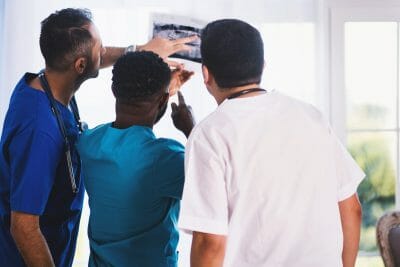Choosing between private general practice and NHS in Broadgate, London, can be difficult for individuals seeking healthcare services. While the NHS offers free healthcare services, a private general practice may offer faster access to appointments and more personalized care. In Broadgate, London, various private general practice clinics and NHS facilities offer a range of services.
Understanding the differences between these two options can help individuals make an informed decision that best suits their healthcare needs and preferences. This article will explore the benefits and drawbacks of private general practice and NHS in Broadgate, London, to help you decide which option is suitable.
Cost of Medical Care
A private Broadgate general practice may require individuals to pay for consultations, treatments, and medications. The cost of private healthcare can vary depending on the clinic, the type of service needed, and the individual’s insurance coverage. Some private clinics offer insurance plans that cover the cost of medical care, while others may require patients to pay out of pocket. You can find most treatments and care types at general practice clinics like We Get You Found.
On the other hand, the NHS provides free medical care to all residents in the UK, regardless of their income or insurance coverage. However, some services, such as dental care and certain types of treatments, may need to be fully covered by the NHS. Additionally, the waiting times for appointments and treatments can be longer in NHS facilities due to the high demand and limited resources.
Therefore, individuals who require urgent medical care or prefer faster access to appointments may consider the private general practice. In contrast, those who do not mind waiting and prefer free healthcare services may choose the NHS.
Waiting Time and Accessibility
Another factor to consider when deciding between private general practice and NHS in Broadgate, London, is waiting time and accessibility. In private general practice, patients often have shorter wait times for appointments and treatments due to the smaller patient load and more personalized care.
Patients can usually book appointments with their preferred doctors at a time that suits them best, which can be particularly beneficial for those with busy schedules. Additionally, private clinics may offer extended hours and weekend appointments, making it more convenient for patients to access medical care.
In contrast, the NHS may have longer waiting times for appointments and treatments due to the high demand and limited resources. According to the BMA, around 7.21 million people are waiting for treatment at the NHS as of 2023. However, the NHS offers accessibility to medical care for all residents in the UK, regardless of their income or insurance coverage.
Moreover, NHS clinics and hospitals are located throughout the country, making it easier for patients to access medical care in their local area. Therefore, individuals requiring urgent medical attention or prefer faster access to appointments may consider private general practice, while those prioritizing accessibility and free healthcare services may choose the NHS.
Quality of Care
The quality of care is another essential factor to consider. Private general practice clinics may offer a more personalized approach to care, as the same doctor often sees patients each visit. It can allow for better continuity of care and stronger patient-doctor relationships. Private clinics may also offer more advanced medical equipment and technology and access to more specialized services, such as cosmetic procedures.
On the other hand, the NHS has a reputation for providing high-quality healthcare services to its patients. NHS doctors and healthcare professionals are highly trained and skilled, and the NHS is subject to rigorous quality and safety standards.
Moreover, the NHS offers a wide range of medical services and treatments, including those that may be more specialized or complex. Therefore, individuals prioritizing personalized care and specialized services may consider private general practice, while those valuing high-quality and safe healthcare services may choose NHS.
Availability of Specialized Care and Treatment
The availability of specialized care and treatment is essential when choosing between private general practice and NHS. Private general practice clinics may offer access to specialized medical services and treatments, such as cosmetic procedures, physiotherapy, and mental health services.
These services may not be available through the NHS or have long waiting times for appointments and treatments. Additionally, private clinics may offer access to advanced medical technology and equipment, which can benefit patients requiring specialized care.
In contrast, the NHS provides a wide range of medical services and treatments, including those that may be more specialized or complex. The NHS has specialized departments and centers catering to specific medical conditions, such as cancer treatment and stroke rehabilitation centers. The NHS also has highly trained and skilled healthcare professionals who are experienced in providing specialized care to patients. There were 36,511 GPs working in the NHS in February 2023.
However, the waiting times for appointments and treatments may be longer for specialized services in the NHS. Access to certain treatments may depend on the availability of resources and funding. Therefore, individuals who require specialized care and treatments may consider private general practice and NHS and weigh the benefits and drawbacks of each option.
Conclusion
In conclusion, choosing between private general practice and NHS in Broadgate, London, requires careful consideration of various factors, including the cost of medical care, waiting time and accessibility, quality of care, and availability of specialized care and treatment. While the private general practice may offer faster access to appointments, more personalized care, and specialized services, it may also require individuals to pay out of pocket for medical care.
On the other hand, the NHS provides free healthcare services to all residents in the UK, but the waiting times for appointments and treatments may be longer, and access to specialized services may be limited. Ultimately, individuals should consider their healthcare needs and preferences when deciding between private general practice and NHS in Broadgate, London. It is essential to choose a healthcare provider that can provide high-quality, safe, and accessible care that meets their unique needs.
